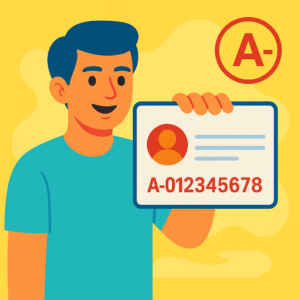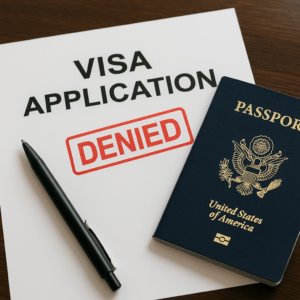The United States Citizenship and Immigration Service (“USCIS”) announced new Forms I-526 and I-526E to be used by EB-5 immigrant investors seeking permanent residence via the EB-5.
- Form I-526, Immigrant Petition by Alien Entrepreneur is to be used by standalone immigrant investors who are not seeking to pool their investment with additional investors seeking EB-5 classification, and will closely resemble the prior edition of Form I-526 (previous commonly referred as a “Direct” investment); and
- Form I-526E, Immigrant Petition by Regional Center Investor is to be used by immigrant investors who are seeking to pool their investment with one or more additional investors seeking EB-5 classification under the new regional center program.
The USCIS created Form I-526E to reflect elements of the new regional center program, including the ability to incorporate evidence by reference from a regional center’s Form I-956F.
By statute, a potential immigrant investor cannot file Form I-526E until the regional center has filed Form I-956F for the particular investment offering through an associated new commercial enterprise into which the potential immigrant investor is investing. Once the regional center has received a receipt notice for the Form I-956F confirming its filing, investors may then file their associated Form I-526E based on that receipt notice.
Effective July 12, 2022, Forms I-526 and I-526E must be submitted in compliance with new program requirements. The filing fee is $3,675 for each form.
By separate “Alert” posted in the USCIS website, the USCIS advised:
“Starting July 12, 2022, we are accepting the new Form I-526, Immigrant Petition by a Standalone Investor.
We will adjudicate all Forms I-526 filed before March 15, 2022 (the date of the enactment of the EB-5 Reform and Integrity Act of 2022), according to the applicable eligibility requirements at the time the petition was filed. We will continue to process Forms I-526 under the visa availability approach, prioritizing petitions for investors with an available visa or a visa that will be available soon.”
For more information or if you have questions, contact us at info@enterlinepartners.com and speak with a U.S. immigration attorney in Ho Chi Minh City, Manila and Taipei.
ENTERLINE & PARTNERS CONSULTING
Ho Chi Minh City, Vietnam Office
Suite 601, 6th Floor, Saigon Tower
29 Le Duan Street
Ben Nghe Ward, District 1
Ho Chi Minh City, Vietnam
Tel: +84 933 301 488
Email: info@enterlinepartners.com
Facebook: Enterline & Partners – Dịch vụ Thị thực và Định cư Hoa Kỳ
Website: https://enterlinepartners.com/
Manila, Philippines Office
Tel: +632 5310 1491
Email: info@enterlinepartners.com
Facebook: Enterline and Partners Philippines
Website: https://enterlinepartners.com/en/home/
Copyright 2022. This article is for information purposes only and does not constitute legal advice. This article may be changed with or without notice. The opinions expressed in this article are those of Enterline and Partners only.








